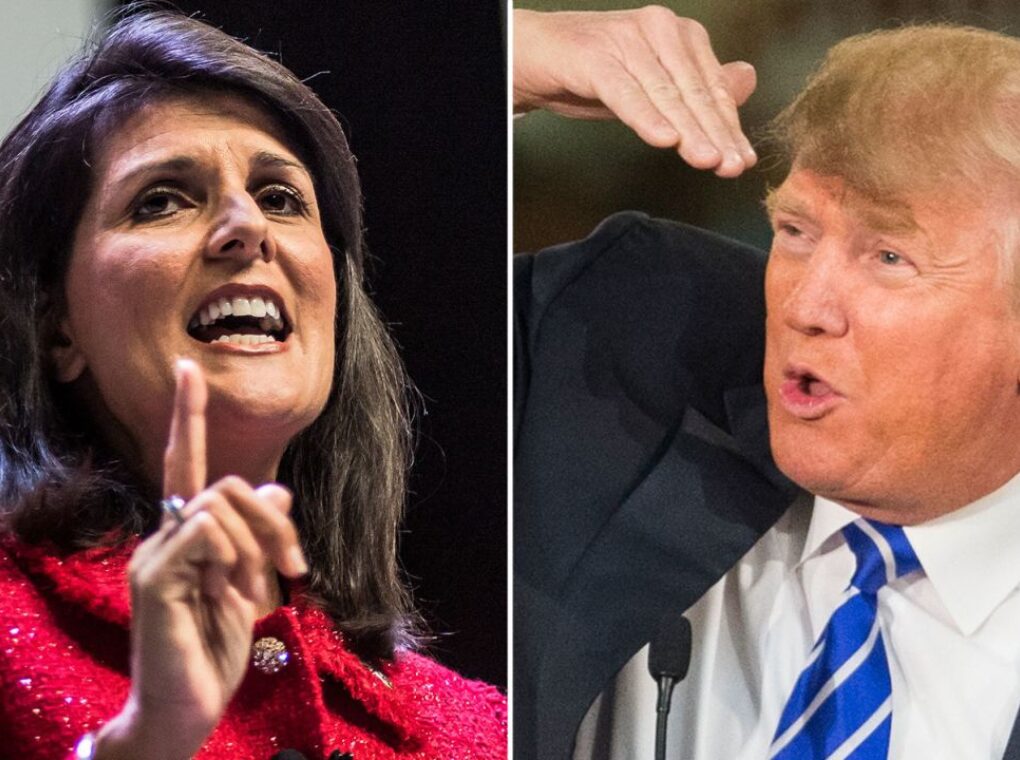U.S. President Donald Trump is once again at the center of international controversy after threatening to sharply raise tariffs in India over its continued imports of Russian oil — while simultaneously offering China a 90-day tariff pause and pursuing a new trade deal with Beijing.
The apparent double standard has drawn criticism from across the political spectrum, most notably from former U.N. Ambassador and 2024 presidential contender Nikki Haley, who warned that such a move could damage one of America’s most important strategic alliances.
“India should not be buying oil from Russia. But China, an adversary and the number one buyer of Russian and Iranian oil, got a 90-day tariff pause,” Haley said in a statement. “Don’t give China a pass and burn a relationship with a strong ally like India.”
Trump’s proposed tariff hike in India — a key democratic partner and member of the U.S.-led Quad alliance — comes amid growing scrutiny of his approach to foreign policy, which critics say has often alienated allies while courting authoritarian rivals.
Targeting Allies, Wooing Rivals?
During his recent remarks, Trump accused India of “funding Russia’s war machine in Ukraine” by continuing to purchase discounted Russian crude oil. Yet just days earlier, the former president took a softer tone with China, America’s chief geopolitical competitor — a country that not only remains the top buyer of Russian and Iranian oil but also continues to defy U.S. sanctions with impunity.
Even as Trump’s rhetoric against India escalates, his campaign is reportedly working behind the scenes to reinitiate trade negotiations with Beijing, a move that has raised eyebrows among national security experts.
“China is expanding its nuclear arsenal, militarizing the South China Sea, threatening Taiwan, and bypassing U.S. sanctions daily,” said a senior fellow at a Washington-based think tank. “It’s hard to understand why a U.S. leader would punish India and reward China.”
The China-Russia Axis Grows Stronger
According to energy analysts, China increased its imports of Russian oil by 20% in April 2025, making it a major source of revenue for Moscow amid Western sanctions. It also remains the largest buyer of Iranian oil and continues to import sensitive materials like uranium and palladium from Russia for use in nuclear and industrial sectors.
In 2023, bilateral trade between China and Russia hit a record $240 billion — further solidifying an alliance that many in Washington now view as a direct threat to the U.S.-led global order.
Despite these concerns, Trump has often refrained from imposing meaningful economic consequences on Beijing, while leveling aggressive criticisms against longstanding allies, including South Korea, Japan, Germany, and NATO members.
A Strategic Miscalculation?
Critics argue that such an approach undermines the very alliances that have historically underpinned U.S. global leadership.
“India is not just any partner — it’s a democratic counterweight to China in the Indo-Pacific,” Haley emphasized. “At a time when Beijing is growing more aggressive, alienating allies like India, Japan, and South Korea is not just unwise — it’s dangerous.”
India, Japan, Australia, and the U.S. form the Quad — a strategic coalition aimed at promoting a free and open Indo-Pacific and balancing China’s regional ambitions.
Analysts warn that pressuring India could drive New Delhi closer to Moscow and Beijing — not out of preference, but out of necessity.
A Fractured Foreign Policy?
The Trump campaign’s actions reflect what some experts call a “fractured foreign policy doctrine” — one that lacks consistency and prioritizes transactional short-term deals over long-term strategic alliances.
“Trump’s unpredictability sends the wrong signal to friends and foes alike,” said Dr. Emily Park, a foreign policy analyst at the Atlantic Institute. “If America turns on its allies, it may soon find itself standing alone.”
The Biden administration has not commented publicly on Trump’s latest remarks, though senior officials are said to be monitoring the situation closely.
Allies or Adversaries?
As the global balance of power continues to shift, the U.S. faces a crucial choice: strengthen and deepen its network of democratic allies, or risk isolating itself while authoritarian rivals grow bolder.
Nikki Haley’s warning is a stark reminder of what’s at stake.
“Don’t give China a free pass while burning ties with a strong ally like India.”
The coming months may determine whether America can maintain its leadership in an increasingly multipolar world — or whether missteps and mixed signals will erode the trust of its closest partners.
